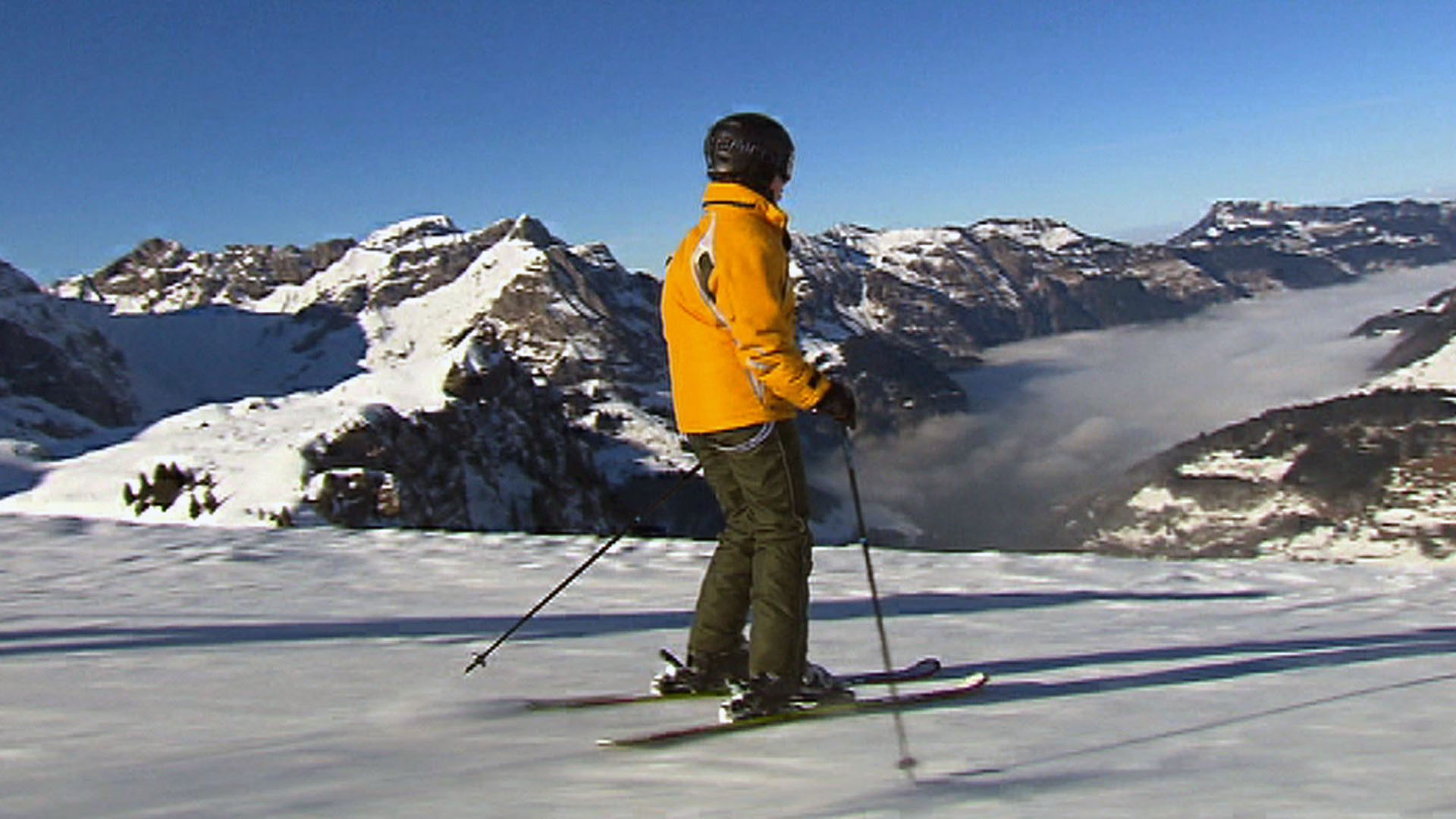Swiss school ski trips show signs of a comeback

How many children in Switzerland will be attending school ski camps this year? Although a court ruling raised fears of the tradition dying out, schools are managing to find workarounds and more students are taking part again.
“Ski camps are saved” was the title of a recent report in the Aargauer ZeitungExternal link that looked at the situation across German-speaking Switzerland.
The Swiss Federal Court ruled in late 2017 that schools may only ask parents for up to CHF16 ($16) a day during obligatory excursions and camps, the amount parents would spend on feeding their children at home. Before that parents were paying CHF150-CHF300, and sometimes more, for a snow sports trip.
Many had feared that the decision would spell the end of the traditional school ski camp that typically takes place in the term after Christmas.
+ Read more about the concerns here
Workarounds
But so far, most schools have found ways to continue to send students on the traditional ski excursions.
Every canton – which are in charge of educational matters in Switzerland – has dealt with the court decision in its own manner, confirmed Ole Rauch, director of the Snow Sports Initiative SwitzerlandExternal link, which promotes snow sports within schools.
Snow Sports Initiative
In 2014 the Swiss government set up the non-profit Snow Sports Initiative, a joint project with snow sport associations and cantons, presided over by Olympic snowboard gold medalist Tanja Frieden. Its aim is to promote snow sports. Teachers and schools can book camps and find attractive deals on its online platform GoSnowExternal link. Its director reports an increase in interest this year.
In some cantons the ski camp is no longer obligatory, so non-attendees stay behind for regular classes. This gets around the court ruling, which only affected parental contributions for obligatory camps. Schools can thus still ask for more funding from parents whose children do attend.
Others, like canton Basel City, have upped their educational budget to cover the extra costs. Some, like BernExternal link, have taken the CHF10-16 as a guideline and have been asking for higher contributions anyway, Rauch said.
“I haven’t seen or heard of cases where people really said this is the last straw where we stop doing camps, especially snow sport camps,” he said of the court ruling, although he noted that some camps have been temporarily cancelled while alternative options are sought.
A report on Swiss television RTSExternal link said that ski camps in the French-speaking part of Switzerland have also mostly been maintained, despite concerns over their decline.
Cultural tradition
Those in the field agree that snow sport camps – that can take place from primary to adolescent age – should not be given up.
“They are extremely important for the learning of social skills,” Bernard Gertsch, president of the Swiss School Directors Association, told the the Aargauer Zeitung.
Indeed an article in Der BundExternal link recently waxed lyrical about the camps as formative experiences: from gaining your first steps to independence, away from parents and teachers, to sneaking about at night to meet up with the opposite sex.
There seems to be less demand from schools for snow sports camps than in their heyday – this is what Snow Sports Initiative partners like mountain railways and ski schools have reported.
Downwards trend?
But there seems to be some recovery. There are no overall statistics for Switzerland, but figures for those camps registered with the government’s Youth and Sport programmeExternal link show the number of participants in those snow sports camps have risen since 2011.
A look at the number of camps show that there were 2,585 in 2005, but this had fallen below 2,300 by 2010. But there have been more camps (with the exception of 2016) since 2015. Provisional figures for 2018 are 2,360.
The reasons for the general drop in popularity, particularly between 2006-2012, can be explained by cost, climate change and competition from other sports or holiday destinations Federal Office for SportExternal link spokeswoman Angela Meschenmoser said via e-mail.
Safety
Rauch adds that safety concerns on the part of parents can still put some teachers off the camps. Immigration from countries with no snow sports tradition also plays a role.
+ More on why skiing is declining in popularity
“Twenty years ago, everyone could ski because their families went skiing, but nowadays it’s harder,” says Rauch. “Maybe families don’t have the background, the money or they do other indoor or winter sports.”
What of the future? The Snow Sports Initiative director is “very sure” that winter school camps will still be around 20 years from now, but maybe with a slightly different model. He envisions more “project week”-style camps, with a few days of snow sports combined with learning about wildlife or avalanches, rather than the classic week-long sports camp.
Regardless of what the future holds, Rauch argues that “it’s important that every child in Switzerland has the opportunity during school time to learn or get to know snow sports because it’s part of the culture.”

In compliance with the JTI standards
More: SWI swissinfo.ch certified by the Journalism Trust Initiative















You can find an overview of ongoing debates with our journalists here . Please join us!
If you want to start a conversation about a topic raised in this article or want to report factual errors, email us at english@swissinfo.ch.